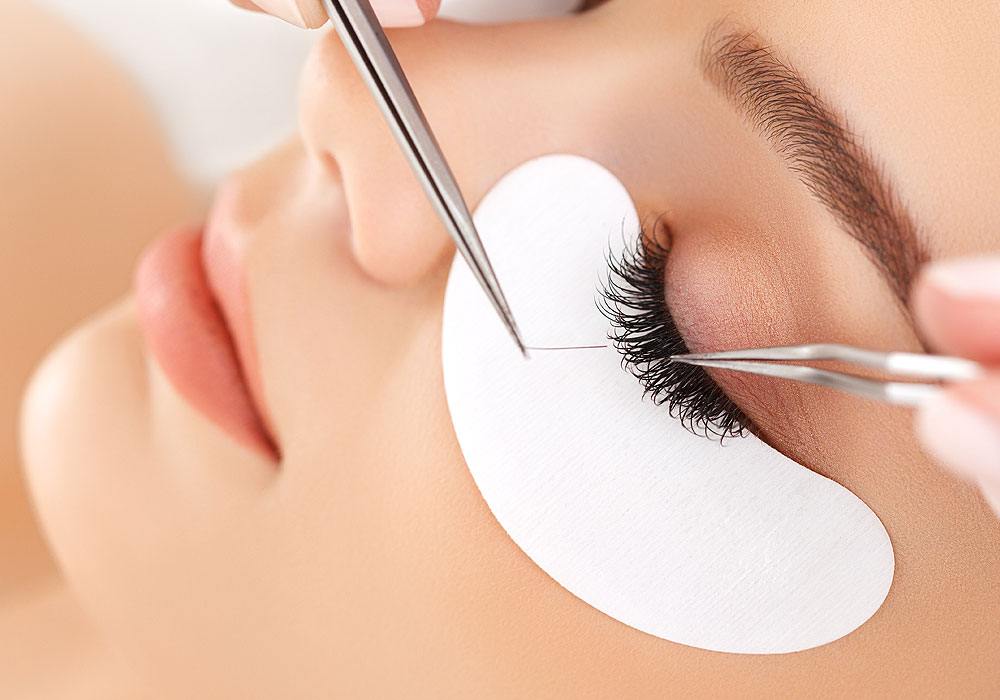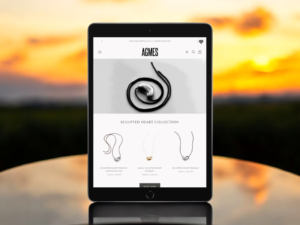A couple of months back I had the genius idea to try lash extensions, not because I needed them but because I wanted to see what all the hoopla was about. Well, let me tell you, after my painful and horrific experience, I will never try lash extensions ever again. EVERRR!
I think it’s really important to say right from the very beginning, if you have a known allergy to latex or certain glues, then DO NOT try your luck with eyelash extensions. And if for some reason you’re gung-ho about trying it, then make sure to try a test patch on your skin first at least an hour before.
READ: The Best Hair Oils to Promote Growth
You should know that red eyes after application is not normal! Sneezing non-stop after application is not normal either. You may even develop water blisters on the upper and bottom rim of your eye. Be aware, these are all signs you’re having an allergic reaction to the lash glue and/or the lash tape applied to your bottom lid during the application process.
The most common reactions to lash extensions are swollen eyes or eyelids, redness of the cornea, itchiness or discomfort around the eye area. These symptoms are likely to show up within the first 48 hours post application. Reactions are likely to become increasingly worse and more dramatic the longer you are exposed to the allergen. Your symptoms will not subside until the adhesive is completely removed from the lashes.
The Ins and Outs about Cyanoacrylate
Most people who have an allergic reaction to the lash glue are reacting to the formaldehyde that is produced when cyanoacrylate—a strong, biodegradable tissue adhesive that polymerizes upon contact with tissues—cures, and not the cyanoacrylate itself.
All lash extension adhesives are made with cyanoacrylate as a base. This is what makes them have such a strong hold. Cyanoacrylate is used as a medical adhesive and in and on the body in its purest grades for humans and animals, as well as in weapon production.
There are three cyanoacrylate compounds currently available as topical skin adhesives.
- 2-Octyl cyanoacrylate is marketed as Dermabond and SurgiSeal.
- n-Butyl cyanoacrylate is marketed as Histoacryl, Indermil, GluStitch, GluSeal, PeriAcryl, and LiquiBand.
- The compound ethyl 2-cyanoacrylate is available as Epiglu.
I strongly caution you, if you find out that you’re allergic to the glue used for lash extensions, then it is highly likely that you are allergic to one of these brands of glue! I can’t stress this enough. From personal experience, I can tell you that I am severely allergic to Dermabond too. So watch out!
Treating an Eye Allergy Caused by Lash Extensions
Once you’re aware you have an allergy to lash glue, it is unwise to get lash extensions. My recommendation, call the salon or your technician ASAP and have them remove the glue and lashes that day. In the meantime, take an antihistamine and eye drops for relieving allergy symptoms. You should check with your doctor to make sure what you are doing is safe for you. Symptoms typically subside within 24 hours after removal if you’re having a mild reaction, however, for more severe reactions, healing can take up to a week.
Just because you’re allergic to lash extensions, doesn’t mean you have to give up on having long, beautiful lashes. Consider these alternatives:
- Use a good lash-growth serum. These can give you naturally longer, darker, and fuller lashes without extensions. You just have to use them daily for about a month to see results and keep using them for the results to last.
- Try a lash lift and tint. Lash lifts help gently curl your lashes upward, making them look longer and can be combined with tinting to help your lashes stand out even more. They are affordable and don’t involve as much upkeep as extensions and last about 6 weeks before needing another touch-up.
- Use mascara that contains synthetic fibers that increase the length of your actual lashes. One of my favorite mascaras that adds length without clumping is Maybelline’s The Falsies Washable Mascara in the purple tube.
READ: Define Your Brows with Eyebrow Pencils
You can avoid irritation by choosing a lash studio or salon that emphasizes safe products and techniques. Inexperienced and poorly trained lash technicians are more likely to use too much glue and overly thick extensions, which can easily lead to irritated eyes, even if you’re not allergic.
10 Reasons I Don’t Like Lash Extensions
- In order to apply them, you’re allowing a stranger to use sharp instruments within centimeters of your eye
- They feel heavy on the eyelid
- They feel like bristles
- You have to constantly brush them out
- There’s a huge risk of you losing unnecessary lashes
- Your eyes can get glued shut
- You can catch lash lice if your lash brush is dirty
- As the fake lashes fall out with your normal lashes, your eyes begin to look almost insect-like
- Initial set and refills are expensive
- It’s a time-consuming process
Have you experienced an allergy to lash extensions? If so, comment below and let us know about your experience.
This post was written by Avni Parekh. Luvly Long Locks has affiliate partnerships and may earn a commission if you make a purchase through the link at no extra cost to you. Rest assured, only products that are known to yield high results are recommended.









